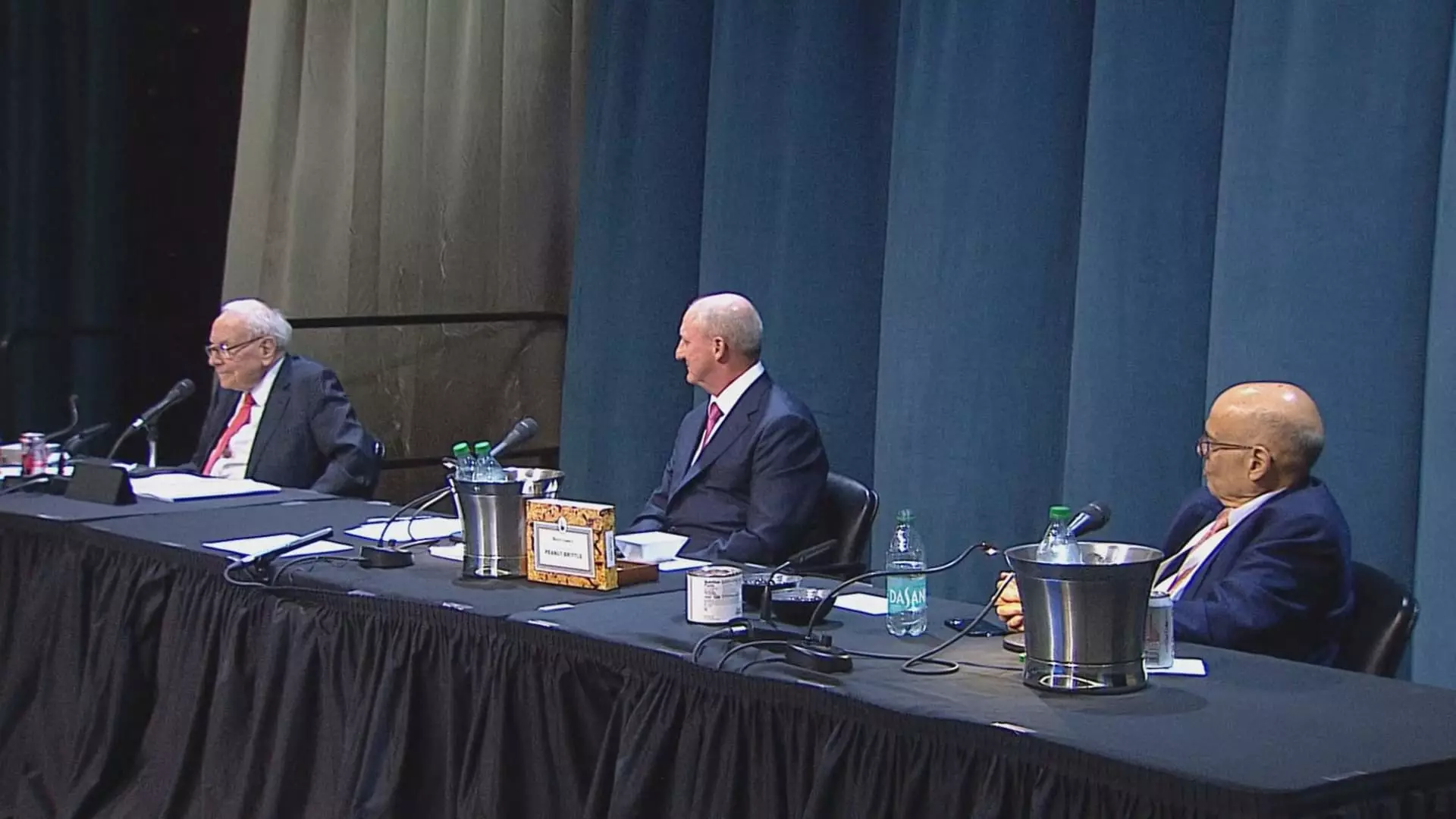5 Profound Insights from Warren Buffett as He Nears Retirement

In the realm of finance, few figures are as revered as Warren Buffett, the Oracle of Omaha. After an unprecedented six-decade journey leading Berkshire Hathaway, Buffett is set to step down as CEO by the end of 2025, amid much speculation about his legacy and future leadership. As he approaches his 95th birthday, his absence from Berkshire’s annual meeting next year will undoubtedly cast a long shadow over an event fondly termed “Woodstock for Capitalists.” For many, this gathering serves as not just a celebration of trends in markets and investments, but also as a heartfelt communion with Buffett himself, someone whose wisdom and insights have shaped generations of investors. While his time at the helm is nearing its end, recent musings from Buffett provide an invaluable look at his philosophy as he prepares to pass the torch.
The Real Estate Fallacy
Buffett’s renewed perspective on real estate versus stocks has sparked not just interest but also controversy. Historically a less enthusiastic advocate for real estate investments, he recently reinforced his belief that the stock market is far superior for wealth-building compared to real estate. He elaborated on the hurdles inherent in property deals, pointing out that they are often burdened with complex negotiations and drawn-out transactions—compared to the ease and speed of trades in the stock market. When you can execute multi-million dollar transactions anonymously with a few clicks, why complicate matters with physical property?
This viewpoint might resonate deeply in today’s market, especially for younger investors who may find real estate intimidating. However, it raises a significant question: Does this perspective discount the emotional and intangible values often associated with owning property? Real estate is not merely a transactional investment; it can represent security, legacy, and personal fulfillment. Buffett’s stance, while logical from a purely financial perspective, may overlook the intrinsic value that many find in tangible assets.
Japanese Ventures: A Surprising Turn
Another intriguing revelation from Buffett during his recent appearances is his ongoing commitment to Japanese trading companies. Initially unveiled on his 90th birthday, this investment has grown to encompass five significant trading firms, signaling a rare and strategic move into foreign territory for Berkshire Hathaway. What’s particularly fascinating is how Buffett stumbled upon these companies—through a basic handbook listing thousands of options in Japan. This anecdote serves as a poignant reminder of the importance of diligent research and looking beyond conventional outlets.
It’s a stunning contrast to the intricate systems many investors use today, relying heavily on technology and algorithms to make decisions. Buffett suggests that sometimes the most profitable avenues lie in the simplest of searches. This pushes back against the increasingly complex world of modern investment, where being bombarded by information can lead some to paralysis rather than action.
The Art of Patience: Focusing on Few Gems
Buffett’s philosophy on investment success remains refreshingly singular: it is about the power of focus and opportunity. He claims that the lion’s share of Berkshire’s profits has emerged from a remarkably small number of strategic decisions—perhaps just eight or nine ideas throughout a span of fifty years. This illustrates a profound lesson in a world where many believe that constant activity equates to better results.
Investing often seems frenetic, with countless experts touting the need for daily engagement with markets. However, Buffett counters this mentality, advocating for patience and an understanding that true investment opportunities are rare and require a keen eye. In a world driven by the manic urgency of stock trading, Buffett’s insistence on patience urges investors to recalibrate their approach, focusing on the long-term rather than the short-lived hype.
The Untapped Power of Insurance Float
Buffett’s optimism about Berkshire’s insurance float is another critical insight. By expertly leveraging the premiums collected from policyholders before claims are paid out, Berkshire enjoys a cash flow that Buffett describes as “absolutely free money.” His approach to interpreting and utilizing this float underscores the ingenuity that defines his career.
However, this exuberance is tempered with caution; Buffett acknowledges the variability in underwriting success. Yet, his historical track record demonstrates a mastery of this business model, advocating for a long-term view where intelligent risk management is paramount. This strategy is a brilliant case study in how financial acumen can turn liabilities into unexpected assets.
The Underestimated Balance Sheet
Finally, Buffett’s preference for balance sheets over income statements presents a paradigm shift for many who closely follow financial reports. He argues that balance sheets provide a clearer snapshot of a company’s financial health than income statements—a point often overlooked on Wall Street. This not only transforms one’s analytic framework but also encourages a deeper examination of corporate fundamentals.
It appears that Buffett’s acute focus on the balance sheets highlights a critical flaw in conventional investment wisdom: not all pertinent information is available in shiny quarterly earnings reports. By encouraging investors to scrutinize companies more closely, Buffett championing an insightful approach that advocates for critical thinking over convenience.
In this late chapter of his career, Warren Buffett continues to offer invaluable lessons, marrying timeless wisdom with sharp insights that challenge traditional investment philosophies. As he prepares to step down, we can only wonder what the future holds for Berkshire Hathaway but can be assured that Buffett’s influence will linger long after his departure.





